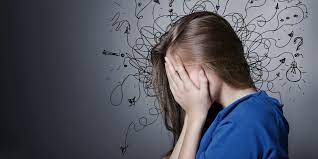Social media platforms are become an essential aspect of our everyday lives in the digital age. Social media has a huge impact on everything from news and entertainment to interacting with loved ones. But in addition to all of its advantages, social media also has a number of drawbacks, worry being chief among them. Because of the continual pressure to portray well-curated versions of themselves, FOMO (fear of missing out), and the addicting nature of scrolling through endless feeds, anxiety has become a common worry in the digital era. This article examines the complex relationship between social media use and anxiety and provides coping mechanisms.
Social networking sites like Facebook, Instagram, Twitter, and Snapchat have completely changed the way people engage and connect with one another. This has led to a rise in anxiety. These platforms give people a way to communicate, express themselves, and create communities. But social media’s ascent has also been matched by an increase in anxiety-related problems. Research has indicated a connection between high usage of social media and elevated anxiety, especially in young adults and teenagers.
Comparison Culture and Self-Esteem:
The prevalent culture of comparison is one of the main causes of anxiety on social media. Users are inundated with well chosen articles and pictures, many of which show perfected representations of life. Low self-esteem and feelings of inadequacy might result from being exposed to seemingly ideal lifestyles all the time. According to research, people who regularly compare themselves to other people on social media are more likely to exhibit depressive and symptoms of Anxiety.
Fear of Missing Out (FOMO):
In the digital era, FOMO is another prevalent cause of worry. Social networking sites are made to keep users informed about the whereabouts and experiences of their friends and acquaintances on a continuous basis. Users could thus experience pressure to continuously check their feeds in order to keep updated and engaged. A feeling of being left behind and increased anxiety might result from the dread of missing out on significant occasions or chances.
Social validation and approval:
In the digital sphere, likes, comments, and shares have grown to be significant markers of social validation. A lot of people believe that their social media following or amount of likes determines how valuable they are. When expectations are not fulfilled, the need for validation and acceptance can become obsessive, causing worry and tension. Additionally, sentiments of inauthenticity and a loss of connection to one’s own self can be exacerbated by the need to uphold a certain online image.
Cyberbullying and Online Harassment:
People may feel more comfortable engaging in cyberbullying and online harassment due to the anonymity and perceived distance provided by social media. There are major psychological repercussions from being the object of such bad behavior, such as anxiety, depression, and even suicide thoughts. Furthermore, because social media is so widely used, harassment can follow victims outside of the virtual realm, exacerbating feelings of insecurity and vulnerability.
Techniques for Handling Anxiety Associated with Social Media:
Although there is no denying that social media has a detrimental impact on anxiety, people can take the following actions to lessen those effects:
Set limits on the amount of time spent on social media each day in order to limit screen time. Establish and adhere to specified time slots for checking feeds. Think about utilizing programs or tools that monitor screen time and send out alerts when boundaries are crossed.
Curate Your Feed:
Pay attention to the stuff you click on and read on social media. Unfollow accounts that make you feel bad or uphold unattainable ideals. Rather, adhere to accounts that support self-acceptance, optimism, and honesty.
Practice Mindfulness:
To assist you manage your anxiety, incorporate mindfulness exercises into your everyday routine. To de-stress and bring yourself back to present-moment awareness, take short breaks from social media and try deep breathing exercises or meditation.
Make Real-World Connections:
Take the time and make the effort to cultivate deep connections offline. Make time to spend in person with friends and family, join clubs or groups based on common interests, and engage in joyful and fulfilling activities.
Seek Professional Assistance:
Don’t be afraid to get help from a mental health professional if anxiety related to social media becomes too much to handle or is interfering with your day-to-day activities. Counseling can offer helpful coping mechanisms and techniques for managing anxiety and enhancing general wellbeing.
Develop Self-Compassion:
Show yourself some love and accept that it’s acceptable to step away from social media or ask for assistance when necessary. Treating oneself with the same consideration and compassion that you would extend to a friend going through a comparable situation will help you develop self-compassion.
In conclusion,
Anxiety is a complicated phenomena in the digital era that is exacerbated by social media’s widespread influence. There are a variety of variables that contribute to anxiety associated to social media, ranging from cyberbullying and online validation to comparison culture and FOMO. However, people may negotiate the digital landscape with more resilience and well-being by putting tactics like screen time limits, feed curation, mindfulness, making real-life connections, getting professional support, and practicing self-compassion into practice. Ultimately, reducing the detrimental effects of social media on anxiety and promoting a more positive relationship with technology depend on striking a healthy balance between online and offline experiences.
